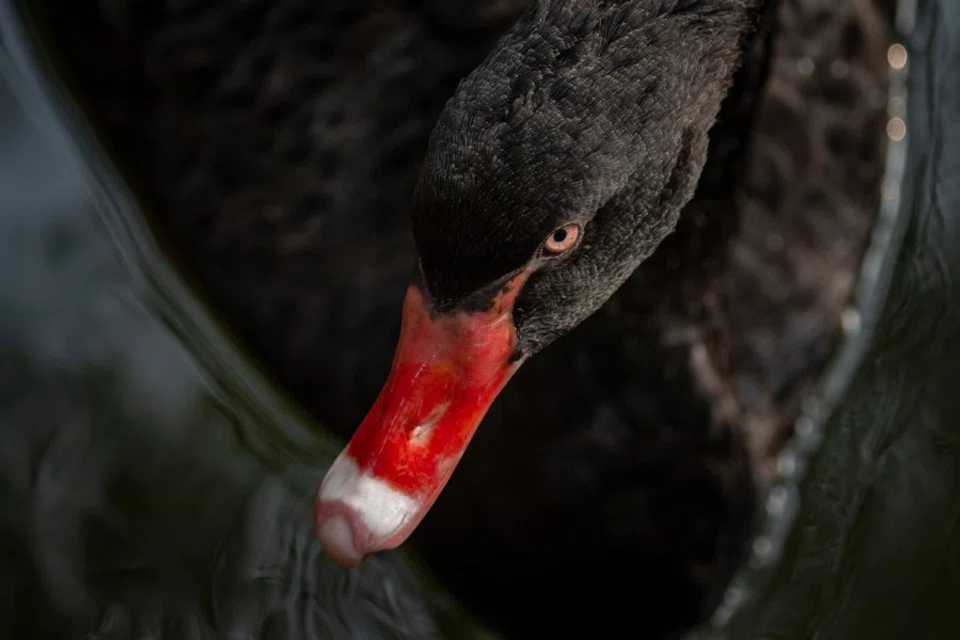Four black swans in the China-US trade war
The China-US trade war continues, seemingly with no end in sight. Adding to the unpredictability of trade talks are unexpected black swans, or complicating factors. Professor Zhu Ying of Shanghai Normal University examines these black swans and the way they have affected trade talks.

The term black swan describes a rare and unexpected major incident. Black swans are everywhere in the China-US trade war. That is to say, the trade war has been thrown into disorder by many unforeseen incidents with major impacts.
The first black swan is US president Donald Trump. He has been jokingly called the "face-changer", and fully deserves the label of black swan. He says one thing today and another tomorrow, and nobody can predict what he will say the day after. He is a rare breed of president in the US, and indeed the world. His unique style of governance has had a major impact on the world, and his unpredictability has been on display throughout the trade war.
Against the backdrop of the constant China-US rivalry, (Trump's) unique trait of "governance by Twitter" has him tweeting assiduously...
For example, on 9 September, he said, "I'm looking for a complete deal, I'm not looking for a partial deal." Then, on 11 October, he announced that the US and China had reached a "phase one deal" - which as good as contradicts a "complete deal". How quickly Trump changes.

However, while he seems changeable on the surface, in fact, these are deft negotiation skills. Against the backdrop of the constant China-US rivalry, his unique trait of "governance by Twitter" has him tweeting assiduously, responding quickly to ever-changing situations. He looks all over the place, but he is determined. This is the US, bent on getting the advantage in the trade war.
The second black swan is African swine fever. The trade war happened at the same time that African swine fever erupted in China, having spread from Russia. And if the supply of Russian pork was able to meet China's needs, the trade war would have turned out differently. The swine fever disrupted China's careful plans to hit back against the US' containment measures.

That's not all. On 11 October, at a meeting with Chinese vice-premier Liu He, Trump announced that China was ready to buy about US$40-50 billion worth of agricultural products. On 8 November, Reuters quoted a report by Rabobank that China's pork imports would hit a historic high of between 3.1 million and 3.3 million tonnes in 2019. On 4 November, Brazil's minister for agriculture said China will import pig's offal from Brazil. And on 6 November, a spokesperson for China's foreign affairs ministry declared that China has resumed imports of beef and pork from Canada.
The reason behind China's increased purchasing of pork is that in October 2019, pork prices in China increased by 101.3%, pushing up its consumer price index (CPI) by 2.43 percentage points, equivalent to an increase of 3.8%, the largest jump in eight years. A single commodity - the pig - changed the direction of the trade war.
The third black swan is the Hong Kong issue. Nobody expected such a huge storm over the extradition bill, which has affected the trade war. Fortunately, Trump has not put Hong Kong on the trade war negotiating table, because his idea of "America First" does not involve talking to foreign governments about human rights issues. He wants to see material benefits before anything else.

On 22 July, Trump said he would not get involved in the Hong Kong issue, and praised China's leaders for being "responsible" in handling the Hong Kong demonstrations. And when announcing the phase one deal on 11 October, he added that the protests in Hong Kong were winding down and the problem was going to "take care of itself".
But the situation in Hong Kong escalated. On 15 October, US Congress passed the Hong Kong Human Rights and Democracy Bill; on 14 November, China's top leader said the most urgent task for Hong Kong now is to end the violence and restore order. That same day, US Senate majority leader Mitch McConnell agreed to begin the "hotline" process to expedite the passage of the bill. The bill was passed unanimously by the Senate on 20 November.
Never in APEC's history has a meeting been cancelled by the host due to internal political unrest, coupled with the fact that Chile was where the China-US trade agreement would have been signed.
The next step is for Trump to sign the bill. Essentially, the Hong Kong issue is now a card gifted to Trump. The Chinese government hopes Trump rejects the bill. So long as how China handles the Hong Kong issue and the trade war are interlinked, the US will have the upper hand in trade negotiations.
The fourth black swan is Chile cancelling the Asia-Pacific Economic Cooperation (APEC) summit. Never in APEC's history has a meeting been cancelled by the host due to internal political unrest, coupled with the fact that Chile was where the China-US trade agreement would have been signed. Now, the lack of a confirmed location for signing adds to the variables of the agreement.

Recent developments show that the prospect of coming to an agreement is still very much up in the air. On 2 November, a China blog called Taoran Notes (陶然笔记) reiterated that the three issues China is concerned about - one being cancelling all additional tariffs - have to be resolved. On 7 November, China's Ministry of Commerce spokesperson Gao Feng announced that over the past two weeks, the leaders of China and the US had held serious and constructive discussions on resolving their core concerns, and had agreed to remove additional tariffs in stages according to the progress of the trade agreement.
Subsequently, Reuters reported that the plans to cancel the tariffs had drawn strong opposition from within and outside the White House. Michael Pillsbury, director of the Center on Chinese Strategy at the Hudson Institute, told Reuters that there was no specific agreement for a phased rollback of the tariffs. "The American side has been ambiguous when and which tariffs will be lifted. The Chinese have some wishful thinking and are trying to soothe their domestic hardliners that the tariffs will someday come off."
On 7 November, White House trade advisor Peter Navarro said the only one who can decide on a phased rollback of tariffs is Trump. But the next day, Trump said he had not agreed to remove additional tariffs, and on 12 November, warned that if no agreement was reached, the US would continue to raise tariffs.
... would the China and US leaders really have signed the trade deal as planned? Only heaven and the people involved would know.
Clearly, China and the US are tussling over the removal of tariffs. On 14 November, Gao Feng said removal of additional tariffs is an important condition of the agreement, leading to immediate speculation on the phase one agreement. Media reported that China and the US were unable to agree on areas such as the volume of US agricultural products China has to buy, industrial policy, intellectual property rights protection, and mandatory transfer of technology. However, also on 14 November, White House economic advisor Larry Kudlow said the US and China are getting close to a deal.
In any case, it seems to be Chile's fault for cancelling the APEC summit. If not for that black swan, would the China and US leaders really have signed the trade deal as planned? Only heaven and the people involved would know.
As the trade war grows increasingly uncertain, let's take the advice of Nassim Nicholas Taleb, the writer of the book Black Swan, not to make any predictions. The unpredictability of the trade war does not mean it will not end. The key lies in whether the people in charge would make the right strategic judgements.





![[Photos] Fact versus fiction: The portrayal of WWII anti-Japanese martyrs in Taiwan](https://cassette.sphdigital.com.sg/image/thinkchina/3494f8bd481870f7c65b881fd21a3fd733f573f23232376e39c532a2c7593cbc)